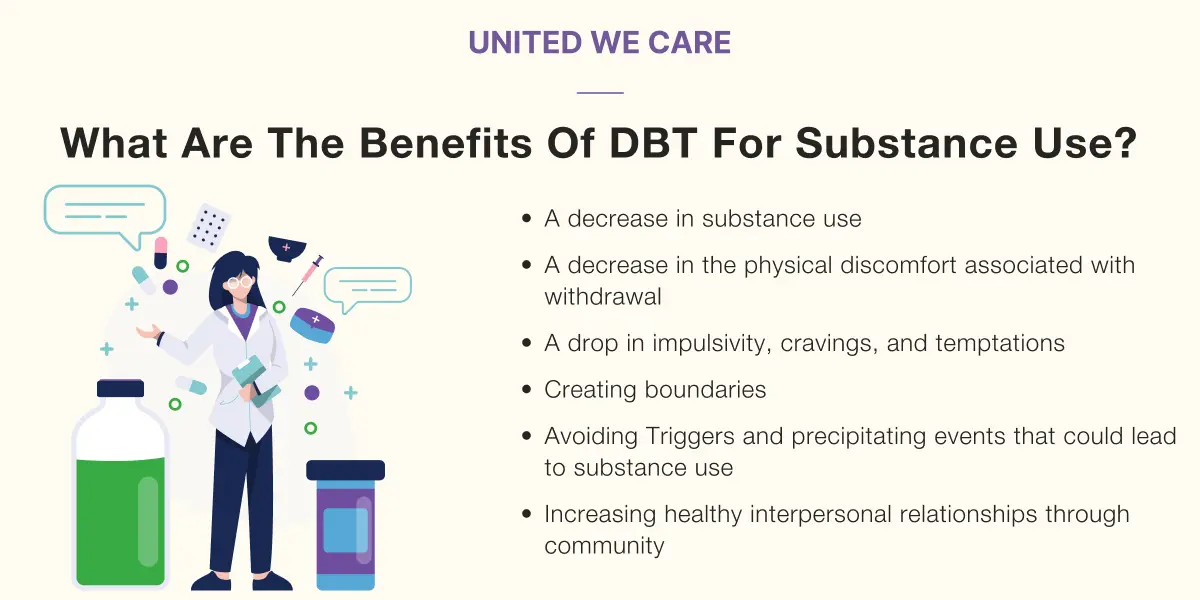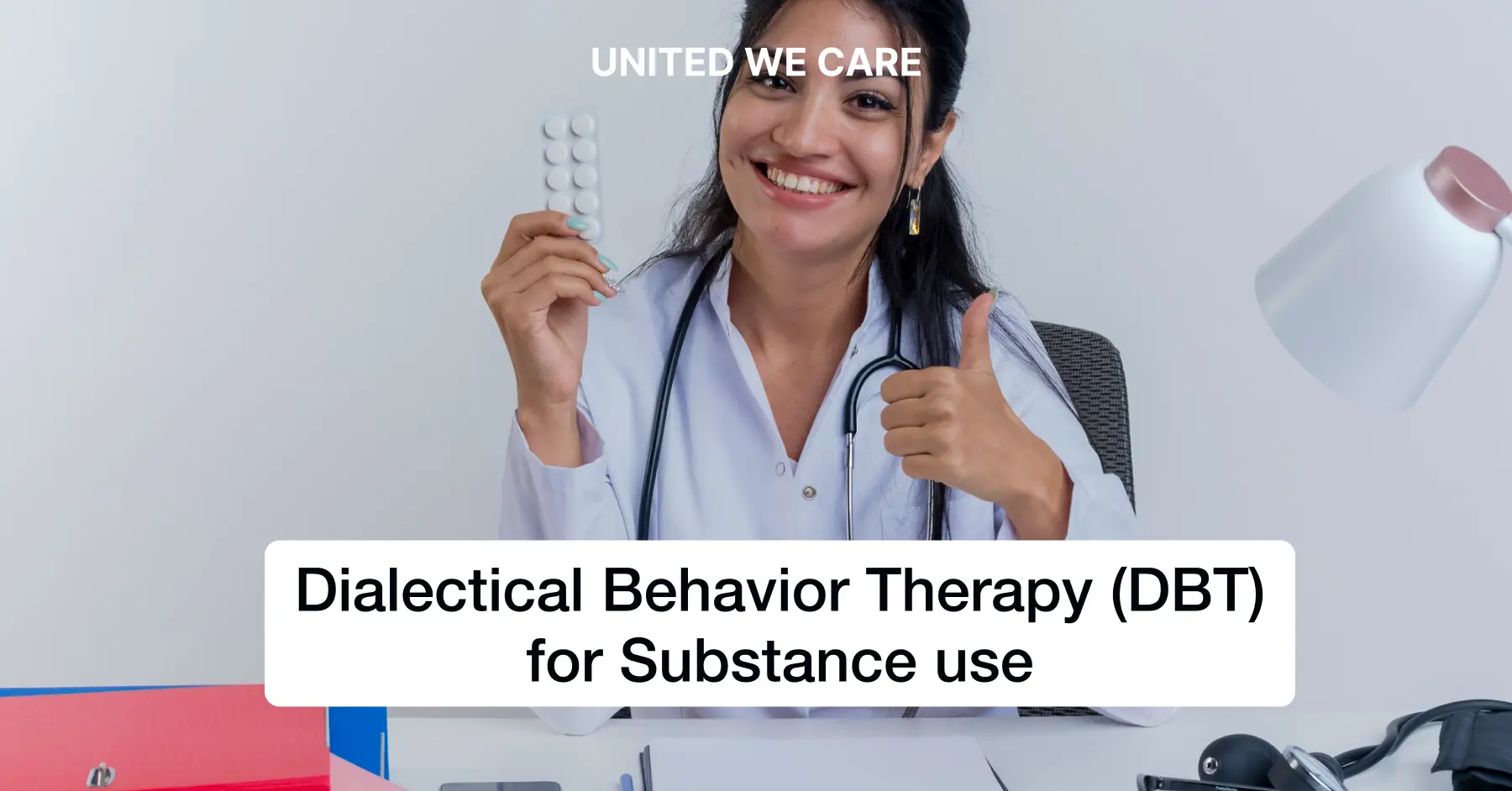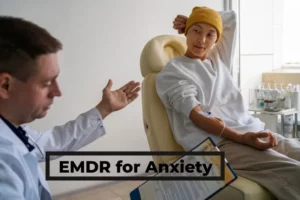Introduction
The “dialectic” in DBT is an acceptance that real life is complex and not linear. Health is not a static thing but an ongoing process hindered by a philosophical conversation with self and others.
Its constant goals are to investigate the truth about negative emotions and to create a balance between conflicting forces.
Dialectical behavior therapy (DBT) is a structured program of psychotherapy. It is designed to provide skills for managing intense emotions and social relationships.
DBT is a treatment used to curb self-destructive impulses, especially for suicidal patients. It is also a treatment method for borderline personality disorder and emotional dysregulation.
How can DBT Help with Substance Use?
Dialectical Behaviour Therapy was created with the intent to help women with suicidal tendencies initially. DBT has proven to be the most effective for individuals with more than just that. Bipolar Personality Disorder is one of the disorders where DBT helps. Anxiety Disorders, Depression, Eating Disorders, ADHD, and PTSD are a few more mental health conditions where the effectiveness of DBT is being investigated.
Several clinical trials suggest that DBT is effective in treating individuals with substance use disorders.
- Through a variety of activities and methods, a substance use-focused DBT approach works to strengthen an individual’s motivation to change and encourages them to commit to sobriety.
- Relapse is viewed as a problem that needs to be solved in DBT for substances like alcohol and drugs. Therapists assist the client in analyzing the circumstances that trigger the urge to use again.
- The analysis encourages them to make amends for the harm the relapse has caused to them and others.
- The goal is to make the person more conscious of the harmful effects that come with the use of drugs and alcohol.
What are The Benefits of DBT for Substance Use?

Many individuals can benefit from treatment. The treatment helps in:
- A decrease in substance use
- A decrease in the physical discomfort associated with withdrawal
- A drop in impulsivity, cravings, and temptations
- Creating boundaries
- Avoiding Triggers and precipitating events that could lead to substance use
- Increasing healthy interpersonal relationships through community
DBT helps in improving interpersonal skills, aiding in mending the strengthening of relationships affected by addiction in an individual’s life.
Additionally, DBT provides a toolkit for addressing the challenges of substance use, facilitating healthier life choices.
How DBT for Substance Use Can Be a Game-Changer?
The main goal of DBT is to accept and validate a person’s feelings, ideas, and experiences.
- The first step to breaking harmful patterns is acknowledgment. “Dialectical” means combining concepts that appear at odds with one another.
- DBT focuses on assisting individuals in accepting the truth of their lives and actions to empower them to make life changes and break bad patterns.
- DBT participants learn four core principles; distress tolerance, emotional regulation, interpersonal effectiveness, and mindfulness- along with new problem-solving skills to more effectively manage intense emotions that can lead to impulsive decision-making and problematic behaviors.
- Individuals who use DBT can learn to tolerate previously stressful or overwhelming events successfully, control their high and low emotions, learn to express their needs, and communicate effectively with others and life in the present moment.
- DBT isn’t just about avoiding negative behaviors. It is about learning new, positive ways to handle life’s challenges.
Goals of DBT
DBT must perform five key functions:
- Motivating clients
- Teaching skills
- Generalizing skills to the natural environment
- Motivating and improving therapist’s abilities
- Designing the therapy environment
- Understanding the client’s skills and goals is key in this therapy. It relies heavily on skill development. Skills training tackles functional impurities, replaces self-defeating behaviors, and enables people to be more physically and psychologically healthy. Clients must demonstrate abilities in a variety of settings.
- To be more effective, therapists must maintain their motivation to work with clients, particularly those who exhibit challenging behaviors.
- DBT stands on the idea of finding a balance – the goal of the therapy is to motivate the client to accept themselves as who they are while also understanding a need for change.
- The balance is crucial for individuals struggling with substance use.
Where Can You Find DBT for Substance Use?
Therapists who facilitate DBT groups are specifically trained to provide effective treatment.
The first step is finding out if DBT is the right fit for you or not!
- You must talk with your doctor, a mental health professional who can evaluate the symptoms, treatment history, and therapy goals.
- A qualified DBT therapist is a licensed mental health practitioner who has received sufficient further academic and clinical training in DBT, as well as supervised experience, to be certified by a credentialing organization.
- CDBT is the abbreviation for certified DBT therapists.
- It may be necessary to obtain the services of a licensed DBT therapist; the therapy is extensive, with numerous components, some of which have been adapted to other, less thorough treatments.
- Look for someone with whom you can establish clarity of communication and who is willing to answer questions you have about treatment.
- If you are a business trying to facilitate a sound mental health environment for your employees, United We Care stands out as one of the best AI-based solutions, catering to complex cases like substance use.
Conclusion
DBT can be a helpful therapy option for those who have not had success with typical CBT courses.
It is especially beneficial for persons suffering from borderline personality disorder, suicidal ideation, or self-harm since it helps them create a more thoughtful, resilient, and adaptive perspective.
It accomplishes this through the use of four modules.
Two of them are concerned with increasing acceptance, while the other two are concerned with promoting healing through behavioral adjustments.
References
- M. B. M. Lpc, “Dialectical Behavior Therapy (DBT) for addiction treatment,” American Addiction Centers, Mar. 13, 2023. https://americanaddictioncenters.org/therapy-treatment/dialectical-behavioral-therapy
- V. Team and V. Team, “How Dialectical Behavior Therapy (DBT) Can be a Game-Changer for your teen,” ViewPoint Center, Mar. 21, 2023. https://www.viewpointcenter.com/how-dialectical-behavior-therapy-dbt-can-be-a-game-changer-for-your-teen/
- C. C. M. Professional, “Dialectical Behavior Therapy (DBT),” Cleveland Clinic. https://my.clevelandclinic.org/health/treatments/22838-dialectical-behavior-therapy-dbt
- N. Schimelpfening, “Dialectical Behavior Therapy (DBT): definition, techniques, and benefits,” Verywell Mind, Nov. 02, 2023. https://www.verywellmind.com/dialectical-behavior-therapy-1067402










